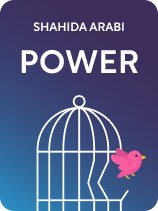

This article is an excerpt from the Shortform book guide to "Power" by Shahida Arabi. Shortform has the world's best summaries and analyses of books you should be reading.
Like this article? Sign up for a free trial here.
Have you been feeling down in the dumps lately? What are activities that activate your feel-good brain chemicals?
Recovering from a relationship with a narcissist can bring up all sorts of negative feelings that just won’t go away. With the help of Power by Shahida Arabi, you can find enjoyable hobbies and activities that pinpoint brain chemicals that make you happy.
Let’s take a look at what you can do to stimulate certain brain chemicals.
Healthy Activities That Stimulate Feel-Good Brain Chemicals
Arabi recommends seeking out healthy activities that will stimulate the release of feel-good brain chemicals such as oxytocin, dopamine, adrenaline, and serotonin. This strategy is helpful because you may experience withdrawal from these chemicals after leaving a narcissistic partner, and these activities replace your biochemical addiction to the narcissist with safer activities that you’re in control of.
(Shortform note: Although substance use (including drugs and alcohol) may also provide temporary relief and a sense of control to victims and survivors of abuse, experts assert that it’s an unsafe way to cope with symptoms of trauma. This is because substance use exacerbates mental illness (like PTSD and depression), lowers self-esteem, and can cause additional health and financial problems that would hinder progress toward healing. In addition, abusers often weaponize substances by fostering an addiction in their victims that can be used to further control them.)
Oxytocin is a hormone that’s released from bonding with people through some kind of physical intimacy. Arabi says that if you associate oxytocin with a narcissist ex-partner, it’s helpful to find new ways to boost oxytocin such as cuddling with animals or other loved ones, hugging yourself, dating casually, and spending time with trusted friends. (Shortform: Some researchers add that oxytocin contributes to psychological stability, trust, and relaxation—functions that are all important for healing after abuse. Other ways of boosting oxytocin are by singing in a group and exercising.)

———End of Preview———
Like what you just read? Read the rest of the world's best book summary and analysis of Shahida Arabi's "Power" at Shortform.
Here's what you'll find in our full Power summary:
- A look at the severe condition called Narcissistic Personality Disorder (NPD)
- How to avoid or end relationships with narcissists
- Advice for healing after narcissistic abuse






